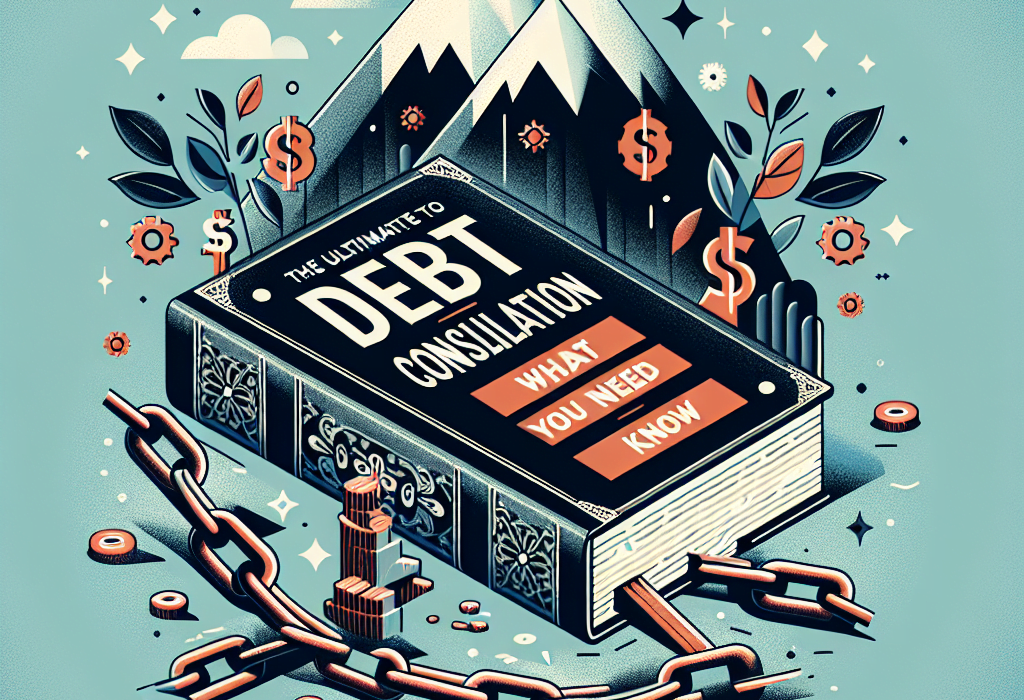The Ultimate Guide to Debt Consolidation: What You Need to Know
Are you feeling overwhelmed by multiple debts? You’re not alone. Many people are dealing with several open lines of credit, with loans from various sources, and high-interest credit cards that seem to drain their resources. This guide aims to provide you with key information about debt consolidation – a financial strategy that could help streamline your debt management efforts.
Understanding Debt Consolidation
Debt consolidation is the process of combining multiple debts into a single loan, usually with a lower interest rate than the combined rates on the original debts. This technique can simplify your debt repayment strategy, saving you money in the long run, and reducing your stress levels.
How Debt Consolidation Works
When you consolidate your debts, you take out a new, larger loan, which is then used to pay off all your smaller debts. This leaves you with one single payment to manage, usually with a lower interest rate. The reduced rate is possible if you have a good credit score or if you secure the new loan with collateral.
The Pros and Cons of Debt Consolidation
Understanding the advantages and disadvantages of debt consolidation gives you an informed perspective before taking the plunge.
Pros:
- Decreased Interest Rates: A consolidated loan typically has a lower interest rate than your combined existing interest rates.
- Simplified Payment: Instead of managing multiple debts each month, you’ll have one single payment.
- Improved Credit Score: Making regular, on-time payments to your consolidated loan can improve your credit score over time.
Cons:
- Potential for More Debt: If you’re not careful, you might run up additional debt on the cards you’ve just paid off.
- Longer Repayment Periods: Some debt consolidation loans stretch the repayment period, resulting in more interest payments overall.
Types of Debt Consolidation
There are different types of debt consolidation options available, each with peculiarities that may suit different individual’s financial circumstances.
Balance Transfer Credit Card
With this, you transfer all your debts to a single card that offers a low introductory APR, often 0%. This offer usually lasts 12 to 18 months, after which the rate goes up.
Debt Consolidation Loan
This is a specific type of personal loan that pays off your existing debts. Then, you repay the new loan in installments over a set term.
Home Equity Loan or Line of Credit
This involves borrowing against the equity of your home. While they offer lower interest rates, they also have a risky downside – failing to make payments risks foreclosure on your home.
Conclusion
Debt consolidation can be a lifeline if you’re drowning in multiple debts. While it does have its drawbacks, such as potentially longer repayment periods and the risk of falling into more debt if not handled responsibly, the benefits can outweigh the negatives for many people. As always, carefully assess your financial situation, obtain financial advice if needed, and ensure you understand the terms of your consolidated loan before signing on the dotted line.
FAQs
1. Who is debt consolidation best for?
Debt consolidation is best for individuals with a good credit score who have multiple unsecured debts and can commit to regular repayments.
2. Can debt consolidation affect my credit score?
Initially, it might affect your score slightly as applying for new credit prompts a hard inquiry on your report. However, responsible management of your consolidated loan typically improves your credit score over time.
3. Are there alternatives to debt consolidation?
Yes, alternatives include debt settlement, bankruptcy, and credit counseling services.
4. Does debt consolidation clear my debts instantly?
No, you still have to repay the debt. However, you’ll be paying it as a single consolidated debt, usually with lower interest rates.
5. Can I consolidate my student loans?
Yes. In the U.S., the Department of Education offers direct consolidation loans to combine multiple federal student loans into one loan at no extra cost.













